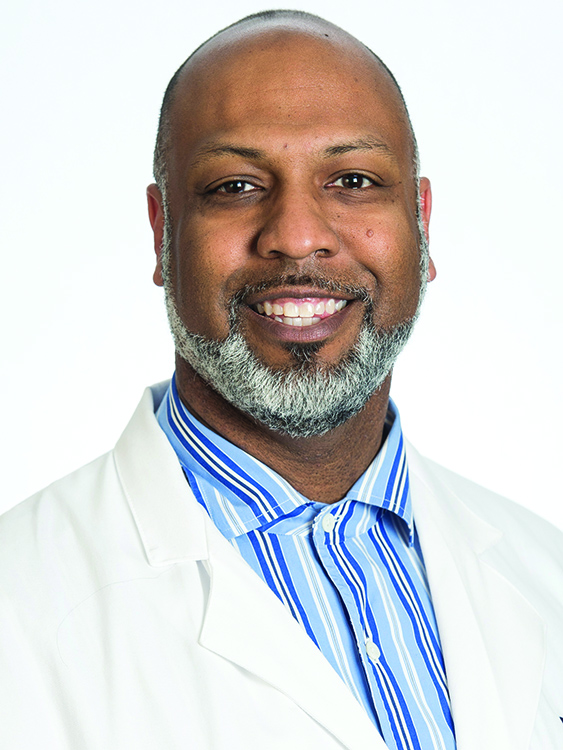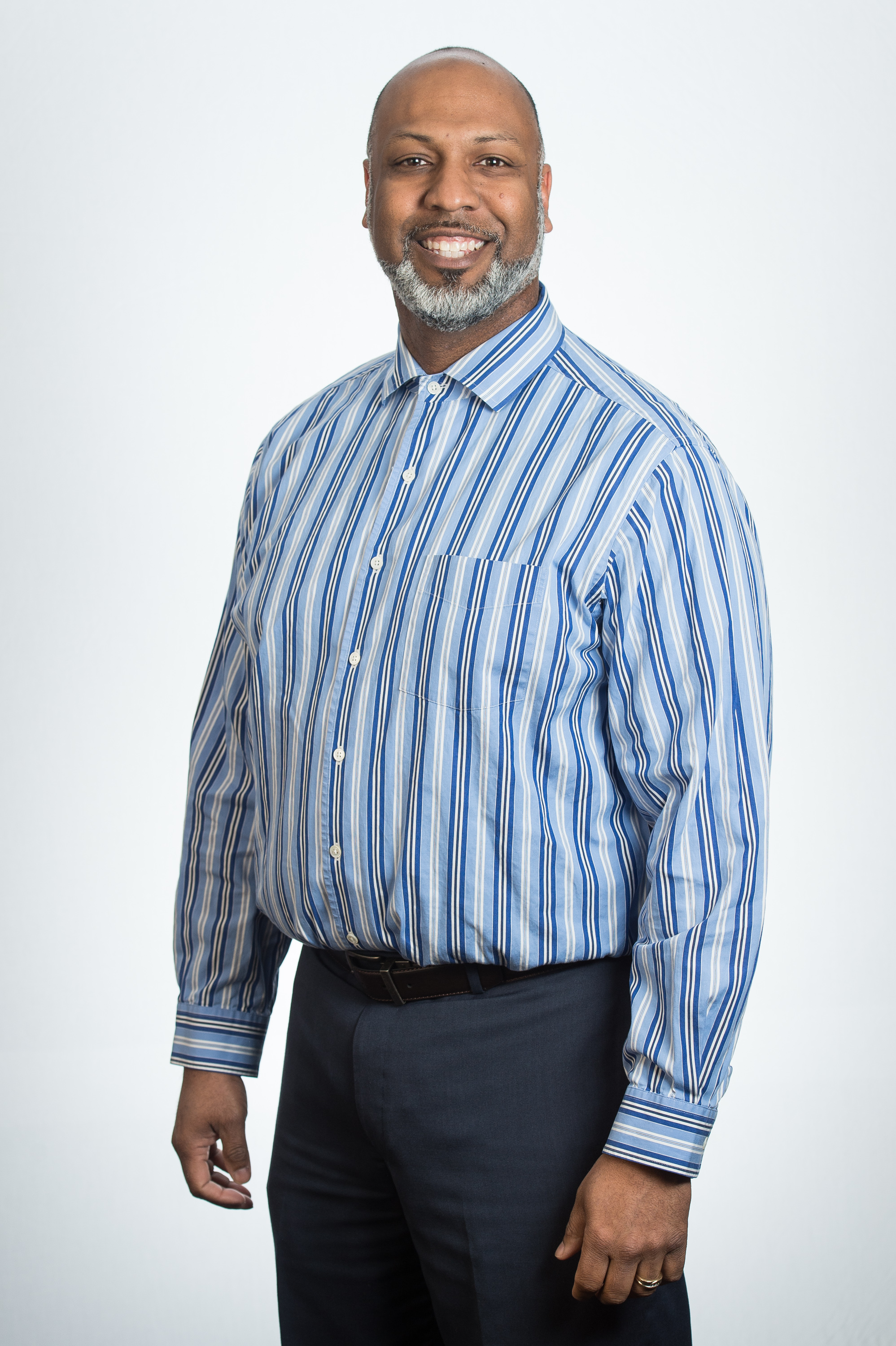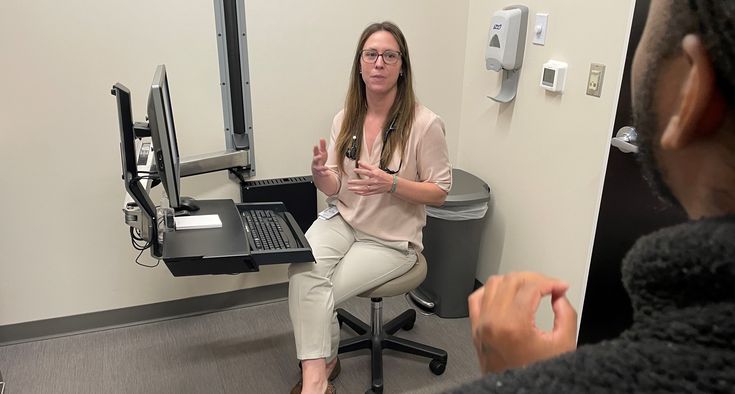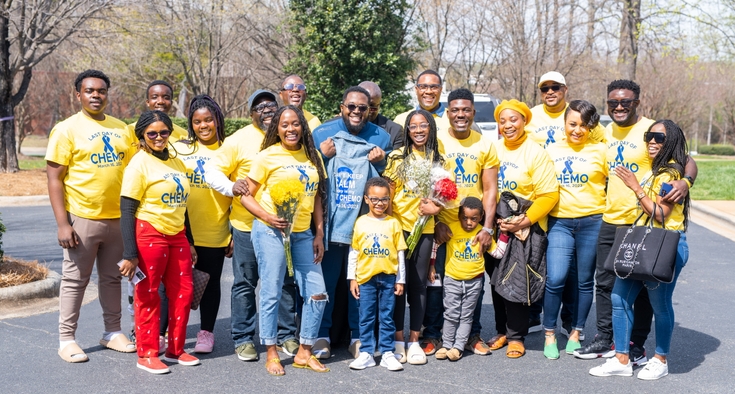Twelve years ago, Fred Adams was stretched thin. At 36, parenting and running his own law practice in Winston-Salem left little time for much else. As a result, Adams skipped exercise, ate what he wanted and lost count of the routine checkups he’d been putting off. It took a medical emergency for him to finally change course.
Adams was experiencing terrible headaches and nausea, but figured the discomfort would eventually subside. But his wife, April, wasn’t about to wait any longer. When she urged Adams to go in for tests, scans revealed that he had suffered a stroke without ever knowing it.
“I was scared to death,” remembered Adams, 48, who today serves as a judge. “I didn’t have the typical symptoms — no slurred speech, no loss of movement. But I had been doing everything wrong.”
A family history of stroke and diabetes had contributed to Adams’s vertebral artery dissection (a tear in an artery in the neck), a common stroke cause in people younger than 45.
High blood pressure, obesity and neglecting exercise are also among the factors that can cause strokes. They affect about 800,000 people in the U.S. each year, with African Americans almost twice as likely as white patients to have a first stroke, according to the National Institutes of Health.
Good health starts with a visit to a primary care physician.
The masculinity problem
For most men, the excuses mount with age: a growing family, a hectic career, a distrust of medicine. But putting health last by delaying routine health checkups and screenings can often lead to a shorter life.

Men of color are especially reluctant to book medical appointments, said Dr. John Card, Adams’s primary care physician at Novant Health Adult Primary Care Harper Hill.
Why wait? Because society’s “masculinity norms” tend to feed male reluctance when it comes to seeking medical attention including preventive care. The resistance can run even stronger among men of color.
“We sometimes fight an uphill battle when it comes to prescribing medication to our African American patients,” Card said. “It’s a feeling of not wanting to feel inferior. Whenever we’re ailing or told that something’s wrong with us, we feel we’re not that super-person we believe ourselves to be.”
Adams: “I don’t know if I was skeptical or whether it was a case of me not prioritizing my health. My thinking was, ‘I’ll get to it when I get to it, or when the pain gets so bad that I can’t bear it.’”
The importance of preventive care
The last thing a reluctant patient wants to hear is bad news. But that’s what Adams got during his first visit with Card. If Adams didn’t immediately make some critical lifestyle changes, he was at risk of having another stroke. Given Adams’s family history, Card prescribed medication and an exercise regimen, and referred him to a nutritionist.
“Everything was bad,” Adams said. “High blood pressure, high cholesterol. I wasn’t working out or doing anything on a regular basis, except drinking way too much juice,” which can be extremely high in sugar.
Medical screenings exist because many conditions in middle age — undiagnosed high blood pressure and prediabetes, for instance — don’t always show up in an obvious way.
“Our goal is not to find something wrong with you,” Card said. “Our goal is to help keep you healthy. But it’s important to come in for your yearly checkups and necessary follow-ups to maintain your health. If we don’t try to prevent illnesses from happening, then by the time you feel it, it can be too late.”
Once a patient is diagnosed, follow-up conversations focus on the steps to take to prevent another health scare, Card said.
“As the patient, you’re the most vital part of our team,” he said. “And I need you to understand that you’re part of this team in order for us to help take care of you.”
‘Don’t be afraid’ of the doctor
Over the course of 12 years, Adams has shed his reluctance thanks to his relationship with Card.
“Dr. Card has genuinely wanted to get me in a better place health-wise,” Adams said. “He’s very thorough and leaves no stone unturned. I trust his personality and his demeanor.”
Because of their regular interactions, Card has also helped Adams manage diabetes and sleep apnea.
“He’s got a busy lifestyle, so it’s about finding ways to keep encouraging him to work on activities that he enjoys and to get that exercise,” Card said. “Life continues to get in the way, so we work together to stay on track.”
At the height of the COVID pandemic, millions of people missed their cancer screenings and routine checkups. But in 2020, when Adams turned 45, Card got him in for a colon cancer screening, which revealed polyps. They were removed, a follow-up screening the following year came back clean. The experience cemented the end of Adams’s lifelong reluctance to get medical intervention.
“My message to other guys is to prioritize your health,” Adams said. “Don’t be afraid. And if you can’t do it for yourself, at least do it for your family and the people you care about.”
Today, Adams is busier than he’s ever been. In 2021 he was appointed a district court judge in Forsyth County. But his health no longer takes a backseat. Consistent medication, regular walks and a close eye on his dinner plate constitute Adams’s daily discipline. And he never misses a checkup.
“Every time I see Dr. Card, I thank him for saving my life,” Adams said. “I was headed in the wrong direction completely. And if I had not made those changes, I can’t say that I would still be here.”

Dr. John Card is in his 27th year as a physician at Novant Health Adult Primary Care Harper Hill. He also serves as the physician liaison for Novant Health’s greater Winston-Salem region and supports the development of health equity and community care.
At first, Card was intrigued with cardiovascular surgery. “I wanted to repair the heart,” he said. “The heart to me is the center of care.”
But during a medical school rotation at Stritch School of Medicine at Loyola University Chicago, Card was drawn to the human element behind internal medicine.
“I like people, and I like to be impactful in their care,” Card said.
“Internal medicine was my way to take care of folks and have that connection. That’s what has kept me here at Novant Health: knowing that I’m working with people who have that same ideology about taking care of patients.”
Find a primary care physician who's the right fit for you.














